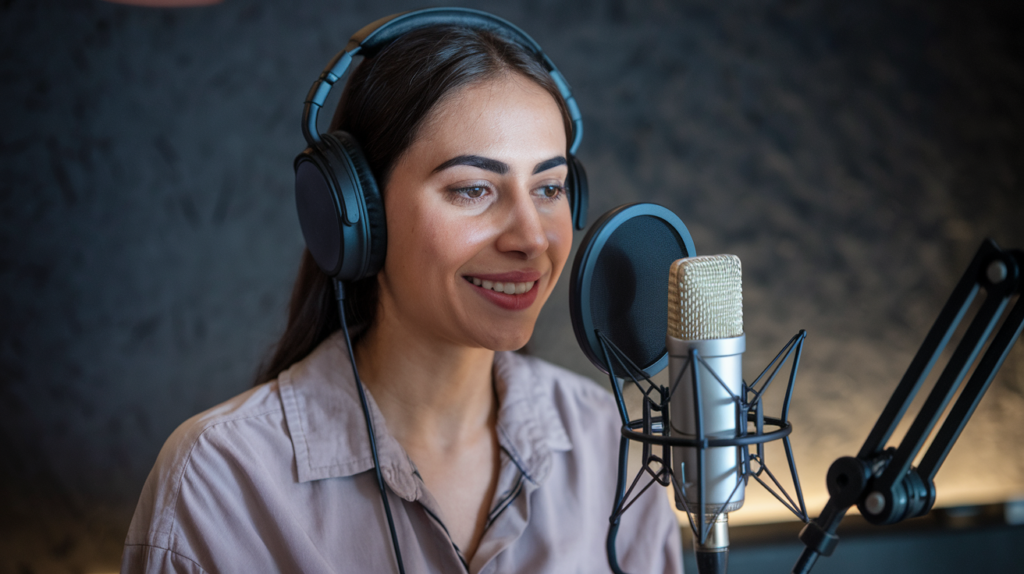Arabic voice artists specialize in delivering voiceover performances in Arabic, catering to a variety of projects such as commercials, audiobooks, films, e-learning materials, and more. These professionals possess a deep understanding of the Arabic language, its cultural nuances, and the diverse dialects spoken across different regions.
Why Choose Arabic Voice Artists?
- Cultural Relevance: Arabic voice artists ensure that the content resonates with native speakers by incorporating cultural subtleties.
- Language Proficiency: Their mastery of the Arabic language guarantees accurate pronunciation, grammar, and intonation.
- Versatility: Arabic voice artists can adapt to various tones, styles, and emotions, from formal narrations to casual advertisements.
The Role of Language in Arabic Voiceover Services
Standard Arabic vs. Regional Dialects
Arabic is a richly diverse language with two primary forms:
- Modern Standard Arabic (MSA): Used in formal settings, media, and education, MSA is understood across all Arabic-speaking regions.
- Regional Dialects: Arabic has numerous dialects, such as Egyptian, Levantine, Gulf, and Maghrebi, which differ in pronunciation, vocabulary, and usage.
Importance of Choosing the Right Form
Choosing between MSA and a specific dialect depends on the target audience and the purpose of the voiceover:
- MSA: Ideal for formal content, such as documentaries, e-learning, or news.
- Dialects: Best for local advertisements, entertainment, or content aimed at a specific region.
Accents and Their Significance
Arabic voice artists can also tailor their performances to reflect specific accents within a dialect. For instance:
- Levantine Arabic: Known for its soft and melodic tone, it is commonly used in content targeting Lebanon, Jordan, Palestine, and Syria.
- Gulf Arabic: Distinguished by its distinctive pronunciations, this accent is suitable for content aimed at audiences in Saudi Arabia, UAE, and neighboring countries.
Accurate accent usage adds authenticity and ensures the audience feels a genuine connection with the content.
Applications of Arabic Voiceover Services
Commercials
Arabic voice artists excel at delivering persuasive and engaging voiceovers for TV, radio, and online advertisements. Their ability to evoke emotion and adapt to the brand’s tone ensures the message resonates with the target audience.
Narration
For documentaries, audiobooks, and corporate videos, Arabic voice artists provide clear and professional narrations that maintain the listener’s interest.
E-Learning and Training
E-learning materials in Arabic require precise and articulate voiceovers. Arabic voice artists bring clarity and fluency, enhancing the learning experience for students or employees.
Animation and Video Games
In animation and gaming, Arabic voice artists bring characters to life by incorporating expressive intonations and emotions, whether for children’s cartoons or action-packed games.
How to Select the Right Arabic Voice Artist
- Determine Your Needs: Decide whether you require MSA or a specific dialect.
- Assess Voice Style: Choose an artist whose tone matches your project’s mood—be it formal, playful, or emotional.
- Review Demos: Listen to the artist’s portfolio to evaluate their versatility and expertise.
- Cultural Sensitivity: Ensure the artist understands the cultural context of your content to avoid misinterpretations.
Arabic voice artists play a pivotal role in bridging linguistic and cultural gaps, making them essential for any project targeting Arabic-speaking audiences.







